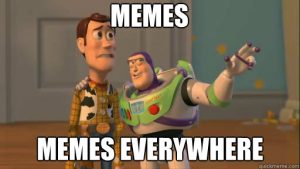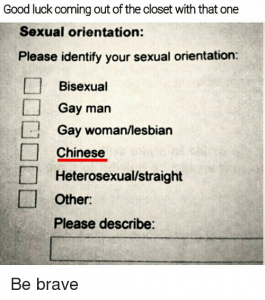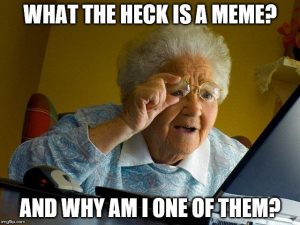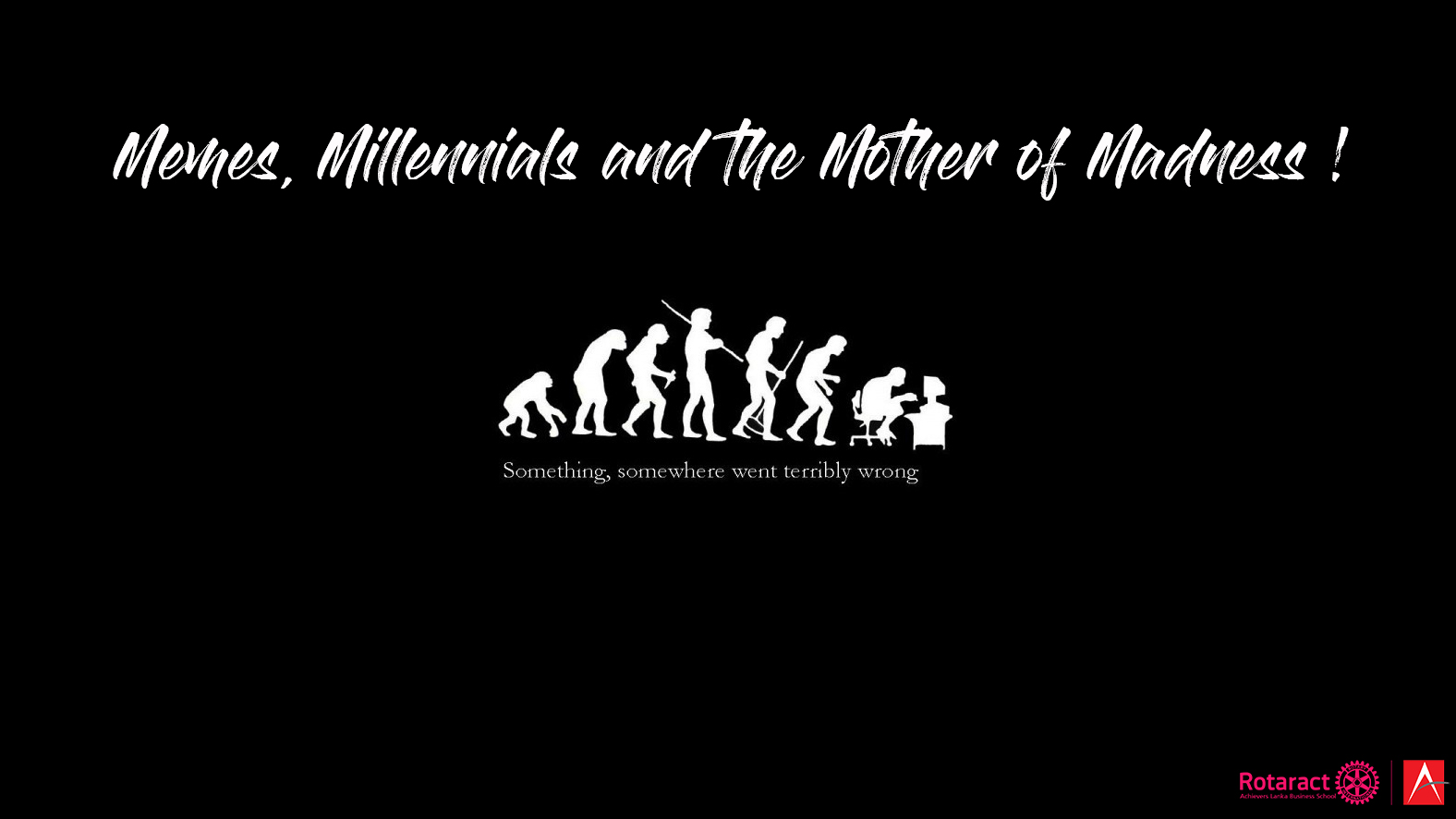Ladies, gentleman, millennials and fellow nine-year-olds. Today I choose this platform, upon which countless have let fly their well-versed arguments and reasonable opinions, to put forth my own sense of cynicism, because unlike most wiser men, I am still under the impression that people care about your opinion on the internet (*a moment of silence*). Anyhow, it is my intention to delve into the very abyss of human decadence, to spectate the outcome of a millennia of evolution to make the most perfect species: Memes. Yes, yes one could argue that it is a sensitive and controversial topic, but why should I use a platform that has the ability to reach hundreds at a time and make an actual difference in the way that people think, to speak about trivial topics such as equality, abortion, racism and discrimination when I could speak about memes? You know, to piss off everybody instead of just a significant portion of the population.
The term “meme” was coined by evolutionary biologist Richard Dawkins in his 1976 book: The Selfish Gene. For Dawkins, cultural ideas were no different than genes—concepts that had to spread themselves from brain to brain as quickly as they could, replicating and mutating as they went. He called those artifact memes, bits of cultural DNA that encoded society’s shared experiences. The meaning of the term has of course evolved (pun intended) through the ages. Nowadays memes are known as…….actually its quite hard to pinpoint exactly what they are. To call them jokes would be as accurate as saying that Sri Lanka has a leadership: technically yeah, but not really. Think about it; when was the last time you actually laughed seeing a new trending meme (*cough* sigh *cough*). Maybe there was a time when the founding fathers of the now prevalent internet community knew what they were creating, but alas that knowledge is lost to us now, and all we have left is a mutilated specimen that could’ve become something much more.

Maybe, memes are a representation of the generation: the millennials. Just like its creation (le memes) the generation itself is stuck in an ever-raging identity crisis. So much so that it had to come up with an entirely new set of genders and sexual orientations to cope with the situation. Gone are the days when the forms at the airport had only two boxes under gender, and gone are the days when you could hit on a girl without worrying whether she’s sexually attracted to a specific type of tacos with extra cheese. Gone are the days when you could assume anything about anyone without being vindicated by SJWs and gone are the days when you could do anything dumb in public without getting a well-known politician’s face plastered on your photograph the very next day.(You know who I’m talking about.)

On the other hand, could memes be a by-product of the birth of the generation? In a time when one has limitless freedom to extend their ideas and opinions about certain issues to the world, it has also become considerably risky to do so, considering how easily one can be defamed by the online community for speaking out. One has only to browse the various comment sections of the Facebook pages that raise awareness of sexual harassment to get a glimpse of the toxicity directed towards those that are brave enough to speak out. In such an environment, is it not safe and impersonal to “share” a meme that you agree with rather than use the medium of social networking sites to voice your opinions directly? Is it not the safer alternative that allows you to transfer the responsibility of your words to an entity that you’ve never even seen in your life. In a way this is a good thing; a safer way to express yourself and a medium through which ideas spread like wildfire, but as a great man who he himself has become a meme through the years once said: “With great power, comes great responsibility”. Unlimited freedom without repercussions and loss of accountability for one’s actions have lead us to a state where we rarely think whether we ought to do something before doing it. No one probably thought too much of it a couple of years ago when the Wonder Woman cosplayer got slandered and derided online for cosplaying, or when the schoolgirl who answered a certain question about water polo wrong got ridiculed to the point of depression. To us, it’s a simple “like and share”, or adding a few words to a preexisting template. Our sense of responsibility gets lost in a plethora of excuses that range from “it’s just a meme” or “it ain’t serious” and the ever-increasing convenience with which we can share information (just a click!).

So here we are! A generation unanimously in agreement that we are all depressed (thanks to memes) that we are all dying to express ourselves (thanks to memes) and that we are all struggling to do so (thanks to memes). Madness, utter madness.
Rtr Randima Fernando
